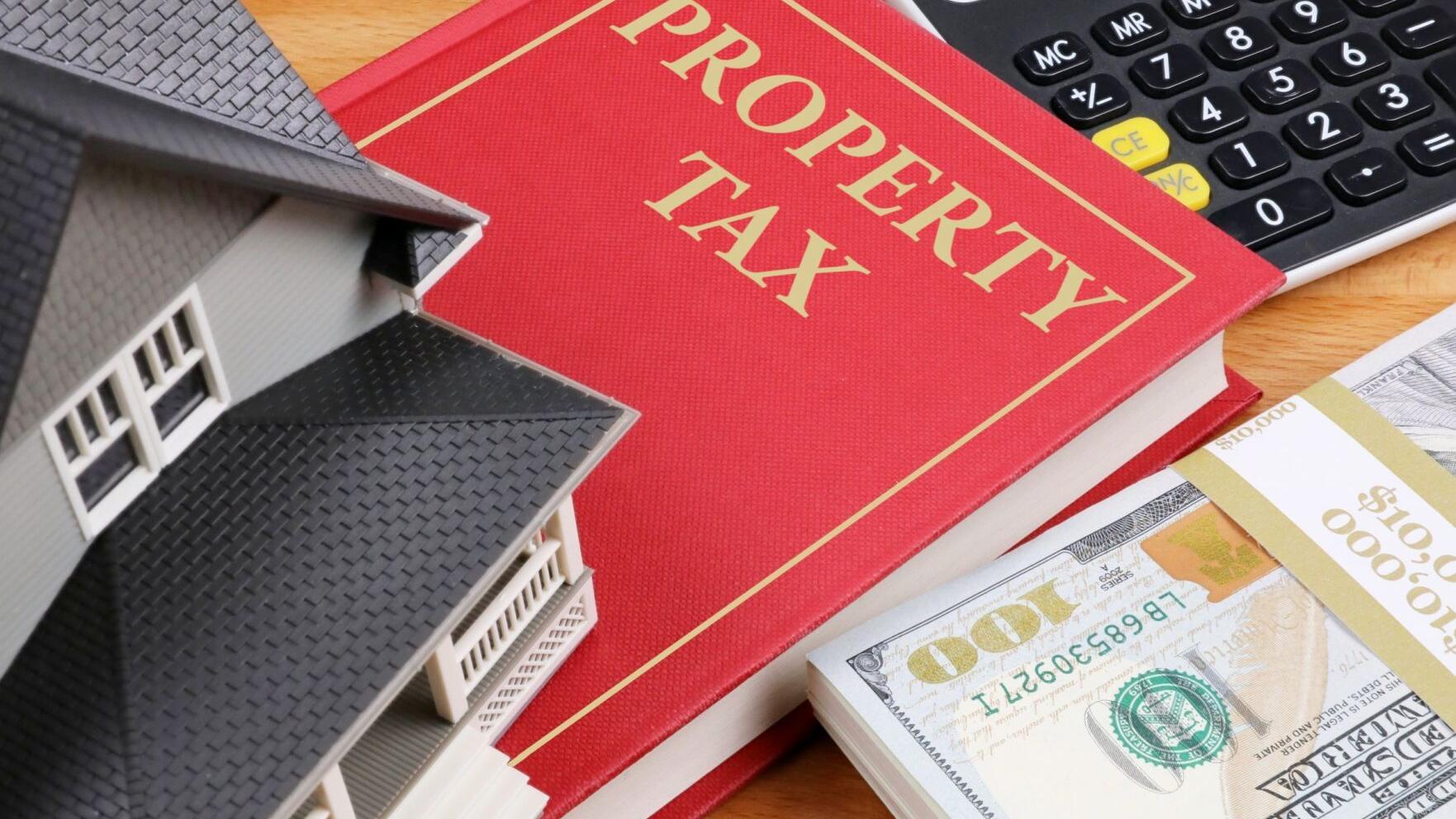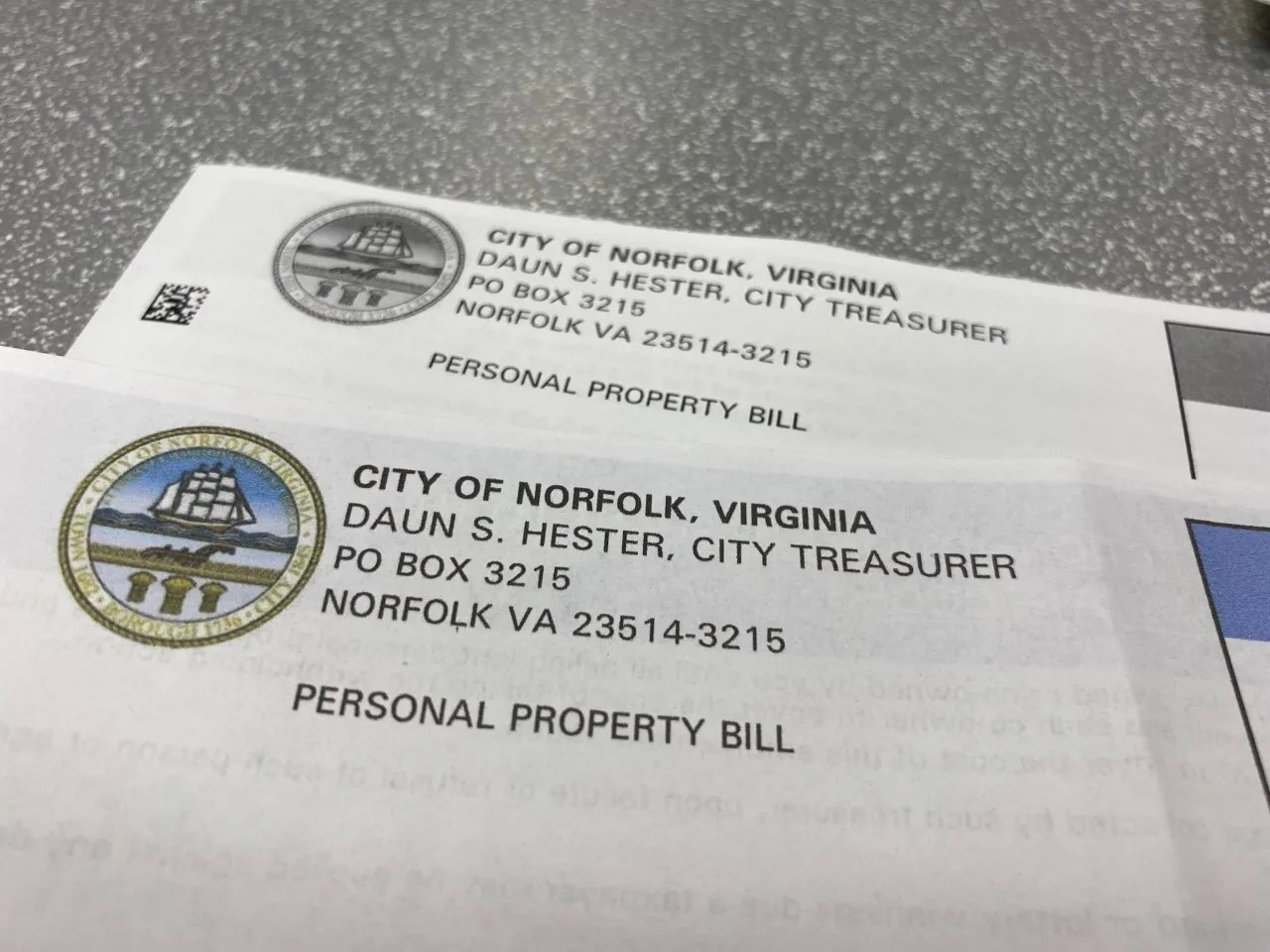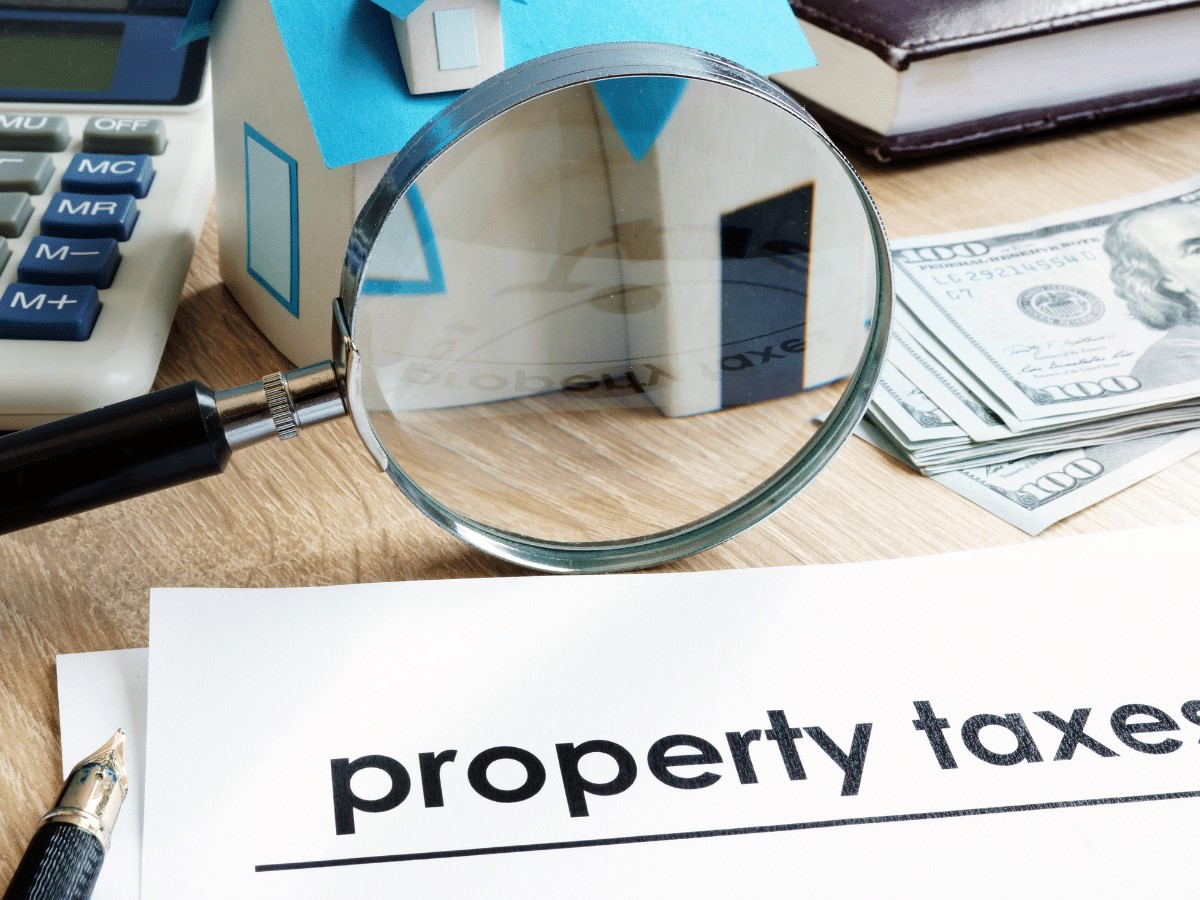Home>Home Maintenance>What Can I Do If I Disagree With Their Property Assessment


Home Maintenance
What Can I Do If I Disagree With Their Property Assessment
Modified: August 17, 2024
Learn what steps you can take if you are unsatisfied with the property assessment. Find expert advice on handling home maintenance disputes.
(Many of the links in this article redirect to a specific reviewed product. Your purchase of these products through affiliate links helps to generate commission for Storables.com, at no extra cost. Learn more)
Introduction
Welcome to the world of home maintenance and property assessments! As a homeowner, you may find yourself in a situation where you disagree with the assessment of your property. Property assessments are crucial pillars of the real estate market, determining the value and tax rate of properties. However, it is not uncommon for homeowners to have differing opinions about the assessed value of their homes.
In this comprehensive guide, we will delve into the various aspects of property assessments and what you can do if you find yourself disagreeing with the assessment of your property. We will explore the reasons behind disagreements, the steps you can take to gather supporting documentation, the process of appealing the assessment, and how to present your case during the appeal hearing. So, let’s dive in and empower you to navigate through the world of property assessments!
Key Takeaways:
- If you disagree with your property assessment, gather evidence of any mistakes, changes in the market, or unique property circumstances. Present a strong case during the appeal process to ensure a fair assessment.
- Consider consulting professionals and carefully weigh the costs and benefits before pursuing further action. Maintain accurate records and stay informed to advocate for a fair assessment of your property.
Read more: How Do I Obtain Tax Property Assessment
Understanding Property Assessment
Before we delve into the reasons for disagreeing with a property assessment, it is essential to have a clear understanding of what a property assessment entails. A property assessment is an estimate of the value of a property, conducted by local government authorities or independent assessors. This assessment serves as the basis for determining property taxes, as well as providing an indication of the market value of the property.
Property assessments are typically conducted periodically, often annually or every few years, depending on the regulations of your local municipality. The assessment process involves evaluating various factors, including the size, location, condition, and characteristics of the property, along with recent sales data for similar properties in the area.
Once the assessment is complete, you will receive a notice detailing the assessed value of your property. This notice plays a vital role in determining the property taxes you are required to pay. However, it is important to note that property assessments are not always accurate and can sometimes deviate from the actual market value of the property.
The assessed value of a property is significant for several reasons. In addition to its impact on property taxes, it can also affect your ability to secure financing, determine the sale price of the property, or even impact insurance premiums. Therefore, it is essential to understand the assessment process and be aware of your rights to challenge an assessment if you believe it is incorrect.
Now that we have a basic understanding of property assessments, let’s explore the reasons why you may disagree with an assessment in the next section.
Reasons for Disagreement
There can be various reasons why you may find yourself disagreeing with the assessment of your property. Understanding these reasons will not only help you identify the source of your disagreement but also enable you to gather the necessary evidence to support your case. Here are some common reasons for disagreement:
- Inaccurate property information: Assessors may make mistakes when gathering information about your property, such as the size, number of rooms, or any recent renovations or upgrades. If you believe that the assessment is based on incorrect or outdated information, it is crucial to gather evidence to support your claim.
- Discrepancies in comparable properties: Assessments are often based on the sales data of similar properties in your area. However, there may be instances where the assessor has used inaccurate or unrelated properties as comparables. If you can find evidence of inaccuracies in the comparable properties used for your assessment, it strengthens your case for disagreement.
- Market value fluctuations: Property assessments are conducted periodically, which means that the assessed value may not reflect the current market conditions. If there have been significant changes in the real estate market since the assessment was conducted, such as a decline in property values, it may warrant a reevaluation of your property’s assessment.
- Special circumstances: Certain circumstances unique to your property may have been overlooked during the assessment process. These circumstances could include structural issues, environmental factors, or any restrictions on the property’s use that may impact its value. Gathering supporting documentation to highlight these special circumstances can strengthen your case for disagreement.
It is important to note that while these are common reasons for disagreement, individual cases may vary. It is crucial to carefully review your property assessment notice and identify the specific reasons for your disagreement. This will help you gather the necessary evidence and provide a solid foundation for your appeal.
Now that we have explored the reasons for disagreement, let’s move on to the next step: gathering supporting documentation to bolster your case.
Gathering Supporting Documentation
When it comes to disputing a property assessment, having strong supporting documentation is crucial. Your goal is to provide evidence that supports your claim and demonstrates that the assessed value is inaccurate. The more compelling and specific your evidence, the stronger your case will be. Here are some key steps to follow when gathering supporting documentation:
- Review your assessment notice: Pay close attention to the details provided in your assessment notice. Note any discrepancies between the information listed and the actual characteristics of your property. This will help you identify the areas where you need to gather supporting evidence.
- Document property improvements: If you have made any significant improvements or renovations to your property, gather documentation that highlights these upgrades. This could include receipts, permits, contractor invoices, or photographs that prove the improvements were made and add value to your property.
- Research comparable properties: Conduct thorough research on recent sales of comparable properties in your area. Look for properties that are similar in size, location, condition, and features to your own. Collect information on their sale prices, as well as any unique factors that may affect their value, such as proximity to amenities or renovations. This data will help you build a case for a more accurate assessment based on actual market values.
- Obtain professional assessments: Consider hiring a professional appraiser or real estate agent to conduct an independent assessment of your property. Their expertise can provide an unbiased perspective on the value of your property, which can be crucial evidence to support your disagreement with the assessment.
- Document special circumstances: If there are any special circumstances that impact the value of your property, gather supporting documentation. This could include reports or assessments regarding environmental issues, structural concerns, or any legal restrictions that affect the property’s use or market value.
Remember, the key is to gather as much specific and verifiable evidence as possible. This will strengthen your case and increase your chances of a successful appeal. Make sure to organize your documentation in a clear and logical manner, so you can easily present your evidence during the appeal process.
Now that you have gathered the necessary supporting documentation, let’s move on to the next step: understanding the assessment process and how to navigate the appeals process.
Reviewing the Assessment Process
Before you proceed with appealing a property assessment, it is essential to familiarize yourself with the assessment process. Understanding the steps involved will help you navigate through the appeals process more effectively. Here is an overview of the assessment process:
- Assessment notice: Once the assessment is completed, you will receive an assessment notice detailing the value assigned to your property. Take the time to carefully review this notice, paying attention to any discrepancies or errors.
- Assessor’s role: Assessors are responsible for determining the value of properties based on various factors, including size, location, condition, and recent sales data. They may use different methods, such as the sales comparison approach or cost approach, to arrive at the assessed value.
- Assessment period: Assessments are typically conducted periodically, often annually or every few years. This means that the assessed value of your property may not reflect the current market value or recent changes in the real estate market.
- Deadline for filing an appeal: There is usually a specific timeframe within which you can file an appeal. This timeframe varies depending on your jurisdiction, so it is important to check the deadline and ensure you submit your appeal within the specified timeframe.
- Appeal process: The process of appealing a property assessment involves submitting a formal appeal to the appropriate authority, such as the local assessment review board or the tax assessor’s office. You will need to provide supporting evidence and make a case for why you believe the assessment is inaccurate.
- Appeal outcome: Once your appeal is submitted, it will be reviewed by the appeals board or assessor’s office. They will consider the evidence presented and make a decision regarding the reassessment of your property. The outcome may result in an adjusted assessed value, a confirmation of the original assessment, or further steps to be taken.
It is important to note that the process may vary depending on your jurisdiction. Some jurisdictions may have specific forms or procedures to follow when filing an appeal. Make sure to familiarize yourself with the specific requirements and guidelines applicable to your area.
Now that we have reviewed the assessment process, let’s move on to the next step: appealing the assessment.
Read more: How Do I Look Up My Property Assessment
Appealing the Assessment
When you disagree with the assessment of your property, appealing the assessment is the next step to challenge the assigned value. The appeal process allows you to present your case and provide evidence to support your disagreement. Here are the key steps to follow when appealing a property assessment:
- Understand the appeal process: Familiarize yourself with the specific procedures and requirements for filing an appeal in your jurisdiction. This may include completing specific forms, providing supporting documentation, and adhering to strict deadlines. Knowing the process will help you navigate through the appeal smoothly.
- Gather your supporting evidence: Compile all the supporting documentation you have gathered, such as property improvement records, research on comparable properties, professional assessments, and any other relevant documentation. Ensure that your evidence is organized and clearly supports your case.
- Complete the appeal form: If there is a specific appeal form required, complete it accurately and thoroughly. Provide all the necessary information, including your contact details, property information, and the reasons for your disagreement with the assessment. Be clear and concise in explaining your case.
- Submit the appeal: Submit your completed appeal form along with all the supporting evidence to the appropriate authority within the designated timeframe. Follow the specified submission instructions and ensure that you retain copies of all the submitted documents for your records.
- Attend the appeal hearing: In some cases, an appeal may involve attending a hearing where you can present your case in person. Prepare for the hearing by reviewing your evidence, practicing your presentation, and anticipating any counterarguments that may arise. Dress professionally and present your case confidently and respectfully.
- Follow up on the decision: After the appeal process is complete, you will receive the decision regarding your reassessment. It may take some time for the decision to be communicated. If you are successful in your appeal, your property’s assessed value may be adjusted. If the decision is not in your favor, you may need to consider whether further action, such as a subsequent appeal or legal recourse, is warranted.
Remember, the appeal process can vary depending on your jurisdiction, so it is crucial to familiarize yourself with the specific requirements and guidelines. Consider seeking legal advice or consulting with professionals experienced in property assessment appeals to ensure you are adequately prepared.
Now that you understand the process of appealing the assessment, let’s move on to the next step: preparing for the appeal hearing.
You can appeal your property assessment by providing evidence of comparable properties with lower assessments or by pointing out any errors in the assessment. Be sure to follow the specific procedures and deadlines set by your local tax assessor’s office.
Preparing for the Appeal Hearing
The appeal hearing is a critical step in challenging the assessment of your property. It provides an opportunity for you to present your case in person and provide additional information to support your disagreement. Here are some key steps to help you prepare for the appeal hearing:
- Review your case: Familiarize yourself with all the documentation and evidence you have gathered to support your disagreement with the assessment. Refresh your understanding of the key points, and ensure that you can articulate your case clearly and confidently.
- Practice your presentation: Prepare a concise and well-structured presentation that highlights the main arguments and evidence supporting your case. Practice delivering your presentation, focusing on clear and persuasive communication. Anticipate potential questions or counterarguments and have well-reasoned responses ready.
- Organize your evidence: Assemble your supporting documents in a logical order, making it easy to refer to specific pieces of evidence during your presentation. Consider creating a binder or folder that contains all the relevant documentation, ensuring that it is organized and accessible.
- Dress professionally: Presenting yourself in a professional manner shows respect for the process and can contribute to the credibility of your case. Dress appropriately, as if you were attending a formal business meeting or court appearance.
- Arrive early and be prepared: Plan to arrive at the hearing location with ample time to spare. This will allow you to compose yourself, review your presentation, and familiarize yourself with the surroundings. Bring extra copies of your documentation in case they are requested or needed during the hearing.
- Remain calm and composed: While attending the hearing, remain calm and composed even if you face challenging questions or disagreements from the opposing party. Maintain a polite and respectful demeanor, focusing on presenting your case objectively and factually.
- Be open to negotiation: In some cases, the appeals board or assessing authority may be open to negotiation or settlement. If the opportunity arises, be willing to explore potential compromises that could lead to a resolution. However, ensure that any proposed agreement aligns with your objectives and serves your best interests.
By thoroughly preparing for the appeal hearing, you increase your chances of presenting a compelling case. Remember to remain confident, organized, and professional throughout the process.
Once the appeal hearing is complete, you will await the decision. In the next section, we will discuss what to expect when receiving the decision.
Presenting Your Case
When it comes to presenting your case during the appeal process, it is essential to effectively communicate your arguments and evidence to support your disagreement with the assessment. Here are some key considerations to keep in mind when presenting your case:
- Begin with an opening statement: Start your presentation with a clear and concise opening statement that outlines the main points of your case. Clearly state your disagreement with the assessment and provide a brief overview of the evidence you will present to support your position.
- Present your evidence: Methodically present your supporting evidence, referring to specific documents or data as necessary. Clearly explain the significance of each piece of evidence and how it supports your case. Use visual aids, such as charts or graphs, to enhance the clarity and impact of your presentation.
- Be organized and concise: Arrange your evidence and arguments in a logical and orderly manner. Avoid rambling or going off on tangents. Stay focused on the main points and key evidence that directly support your disagreement with the assessment. Keep your presentation concise, as brevity can make your arguments more persuasive.
- Address potential counterarguments: Anticipate potential counterarguments or questions from the opposing party or assessors. Be prepared to address these points and provide reasoned responses based on your evidence. Remain calm and composed, presenting your rebuttals in a respectful and confident manner.
- Speak clearly and confidently: Project your voice clearly and speak confidently throughout your presentation. Maintain eye contact with the assessors and other participants, demonstrating your commitment and preparedness. Use a professional and authoritative tone to convey credibility.
- Summarize your case: Conclude your presentation with a brief summary of your main arguments and the evidence presented. Restate your disagreement with the assessment and the key reasons why you believe it to be inaccurate. Leave the assessors with a clear and lasting impression of your position.
Remember, the goal of presenting your case is to effectively communicate your perspective and provide compelling evidence to support your disagreement with the assessment. By following these tips, you can enhance your presentation and increase your chances of a successful appeal.
Once your case has been presented, you will await the decision. In the next section, we will discuss what to expect when receiving the decision.
Receiving the Decision
After presenting your case during the appeal process, you will anxiously await the decision regarding the reassessment of your property. The decision will determine whether the assessed value will be adjusted or remain the same. Here’s what you can expect when receiving the decision:
- Notification: Once the appeals board or assessing authority reaches a decision, you will receive a notification of the outcome. The notification may be sent via mail, email, or through an online portal, depending on the procedures in your jurisdiction.
- Review the decision: Take the time to carefully review the decision, paying close attention to any changes in the assessed value and any accompanying explanations or justifications. Understand the nature of the decision and the reasons provided by the decision-making body.
- Acceptance of the decision: If the decision is in your favor and the assessed value has been adjusted to reflect your disagreement, you can choose to accept the decision. This means that the case is resolved, and the new assessed value will be applicable for future property tax calculations.
- Reconsideration: If you are dissatisfied with the decision, you may have the option to request a reconsideration. This typically involves submitting additional evidence or providing further explanations to support your case. Be aware of the specific procedures and deadlines for requesting a reconsideration in your jurisdiction.
- Further legal recourse: If you disagree with the decision and believe that it is unfair or incorrect, you may have the option to pursue further legal recourse. This could involve seeking professional legal advice or escalating the matter to a higher level, such as filing a lawsuit or initiating a dispute resolution process.
Remember to carefully consider your options and weigh the potential costs and benefits of pursuing further action. Legal recourse can be a complex and time-consuming process, so it is important to assess whether it aligns with your goals and the potential for a successful outcome.
Regardless of the decision received, it is essential to maintain accurate records of all correspondence, documents, and decisions related to your property assessment. These records will be valuable if you need to refer back to them in the future or provide evidence for any subsequent appeals or legal actions.
Now that we have discussed the process of receiving the decision, let’s move on to the final section: considering further action.
Read more: What Is Property Assessment Profile
Considering Further Action
After receiving the decision on your property assessment appeal, it is essential to carefully consider your options and determine whether further action is necessary or appropriate. Here are some factors to consider when deciding whether to take additional steps:
- Evaluate the outcome: Begin by evaluating the outcome of the appeal decision. Determine whether the reassessment aligns with your expectations and whether it adequately addresses your disagreement with the initial assessment. If you are satisfied with the outcome, you may choose to accept the decision and move forward.
- Assess the impact: Consider the implications of the reassessment on your property taxes, potential financing opportunities, or other factors that may be affected by the assessed value. If the impact is significant and you believe the reassessment still does not accurately reflect the market value of your property, you may decide to pursue further action.
- Consult with professionals: Seek advice from professionals, such as real estate agents, appraisers, or legal experts, to gain a better understanding of your options and the potential for success with further action. Their expertise can provide valuable insights and help you make an informed decision.
- Weigh the costs and benefits: Consider the financial costs, time commitment, and potential risks associated with pursuing further action. Legal or professional fees, as well as the emotional toll of an extended process, should be taken into account. Assess whether the potential benefits outweigh the potential costs.
- Understand the procedures: Familiarize yourself with the specific procedures and requirements for any further action you may be considering, such as filing a subsequent appeal, engaging in mediation or arbitration, or initiating legal proceedings. Be prepared for the obligations and timelines involved in each option.
- Consider alternative resolutions: Explore alternative resolutions, such as negotiating a compromise with the assessing authority or pursuing other avenues to address your concerns. Mediation or settlement discussions may offer an opportunity to reach a mutually agreeable outcome without going through an extensive legal process.
Ultimately, the decision to take further action will depend on your individual circumstances, the extent of your disagreement with the assessment, and your willingness to pursue resolution. It is important to carefully evaluate the potential benefits and risks before proceeding.
If you decide to take further action, be sure to adhere to the prescribed procedures and consult with professionals who can guide you through the process. Maintain clear and organized records of all communication, documentation, and decisions related to your case.
Remember that property assessment appeals can be complex, and the outcome is not always guaranteed. Therefore, it is crucial to assess the situation thoroughly and make an informed decision based on the specific circumstances of your case.
Now that we have explored the considerations for further action, let’s conclude our comprehensive guide to challenging a property assessment.
Conclusion
Congratulations! You have reached the end of our comprehensive guide on what to do if you disagree with a property assessment. We hope this information has provided you with valuable insights and guidance on how to navigate through the process of challenging an assessment.
Understanding property assessments, gathering supporting documentation, reviewing the assessment process, appealing the assessment, presenting your case, and receiving the decision are all key steps in challenging a property assessment. It is essential to approach each step with careful consideration, attention to detail, and a clear understanding of your rights and options.
Remember that disagreements with property assessments are not uncommon. Assessors may make mistakes, the market value of your property may have changed, or there may be unique circumstances that impact your property’s value. By advocating for yourself and presenting a compelling case supported by strong evidence, you have the opportunity to correct any inaccuracies and ensure a fair assessment of your property.
Always seek guidance from professionals, such as real estate agents, appraisers, or legal experts, if needed. Their expertise can provide valuable insights and help you make informed decisions throughout the process. Additionally, be aware of the specific procedures and requirements in your jurisdiction, as they may vary.
Remember that the outcome of an appeal is not always guaranteed, and further action may or may not be warranted depending on your circumstances. Carefully weigh the costs, benefits, and potential impact before deciding to pursue additional steps.
Lastly, maintain accurate records of all correspondence, documentation, and decisions related to your property assessment appeal. These records will serve as a valuable resource if you need to refer back to them or pursue further action in the future.
We hope this guide has equipped you with the knowledge and confidence to challenge a property assessment if you find yourself in disagreement. By staying informed and proactive, you can advocate for fair and accurate assessments of your property.
Good luck, and here’s to a successful resolution of your property assessment disagreement!
Frequently Asked Questions about What Can I Do If I Disagree With Their Property Assessment
Was this page helpful?
At Storables.com, we guarantee accurate and reliable information. Our content, validated by Expert Board Contributors, is crafted following stringent Editorial Policies. We're committed to providing you with well-researched, expert-backed insights for all your informational needs.














0 thoughts on “What Can I Do If I Disagree With Their Property Assessment”